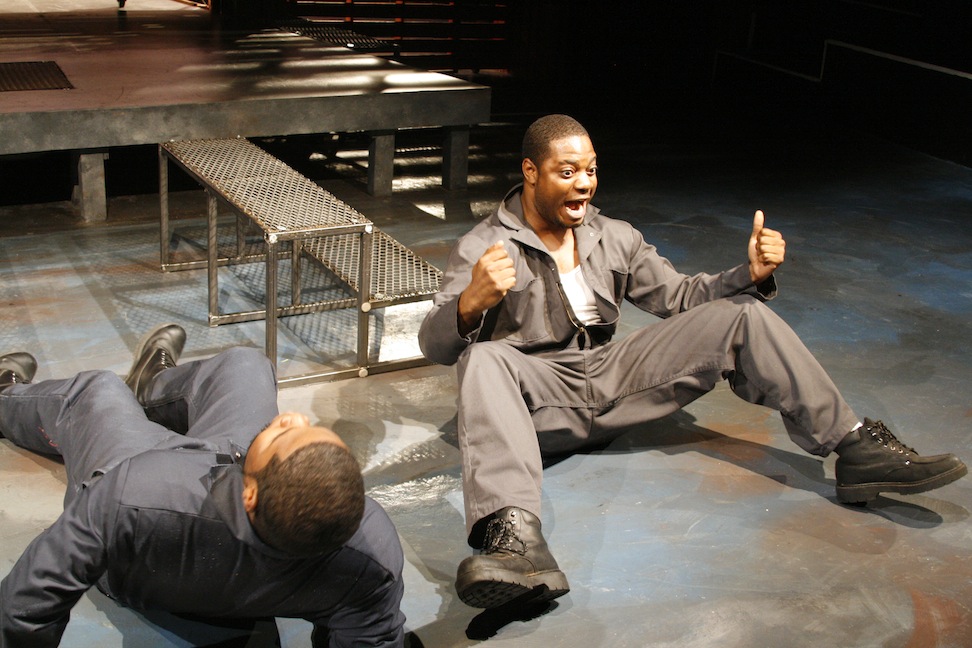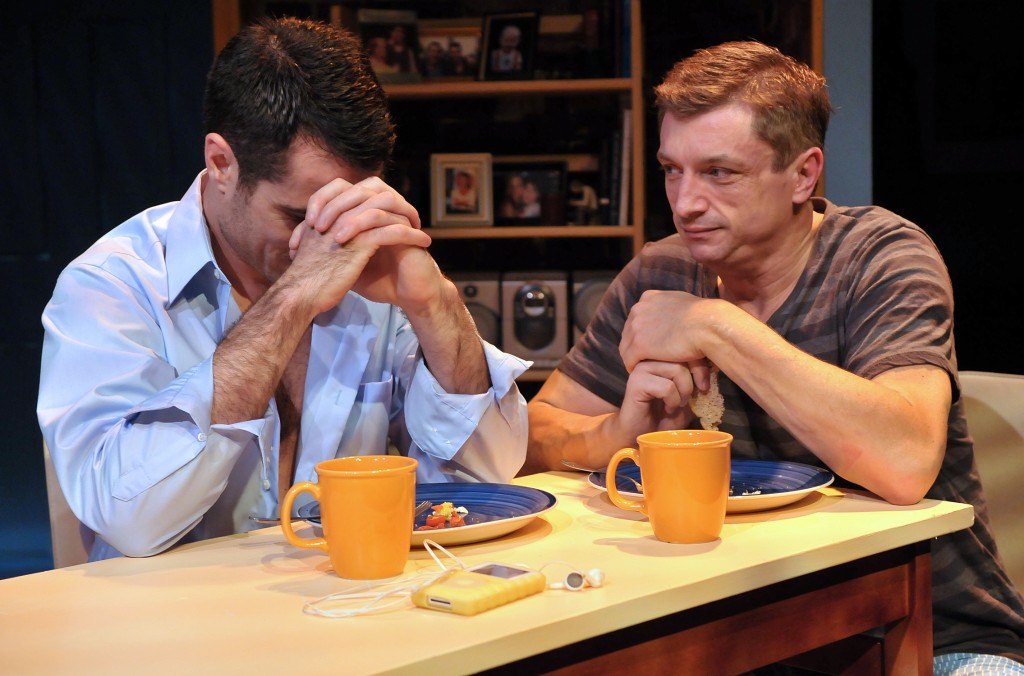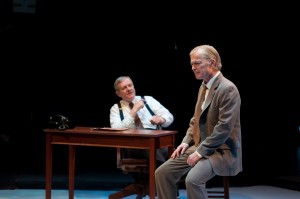The Brothers Size and Marcus; Or The Secret Of Sweet by Tarrell Alvin McCraney, Company One, Plaza Theatre at the Boston Center for the Arts, 11/10/11-12/3/11, In repertory with In The Red And Brown Water, http://www.companyone.org/Season13/Brother_Sister_Plays/synopsis.shtml. Contains strong sexual content and some graphic language.
Reviewed by Anthony Geehan
(Boston, MA) It was once said by the great American musician Miles Davis, “it’s not the notes you play; it’s the ones you don’t play.” While he was using the phrase to sum up the art of preforming jazz music, the saying resonates a sort of “less is more” mentality that is palpable to every form of art. From the Hemingway’s seven word classic “Baby Shoes” to sculptor Tony Smith’s famous block works, minimalism can be both a necessity when resources are scarce and an inspiring self-induced boundary to work within. In the world of theatre, its idea has been stretched from one man plays and single set pieces to improvised comedy and flash mob acts. Possibly one of the best examples of minimalism in theater today can be found in Tarell McCraney’s The Brother/Sisters Plays, a trilogy spanning the story of three separate generations living in the bayous of Louisiana, all told with minimal set pieces and eight actors playing characters in three separate moments in time connected through kin. While part one of the trilogy In The Red and Brown Water is a full length play, parts two and three, The Brother Size and Marcus; Or the Secret of Sweet are shorter works, shown in tandem in order to wrap up the series arc. Continue reading


